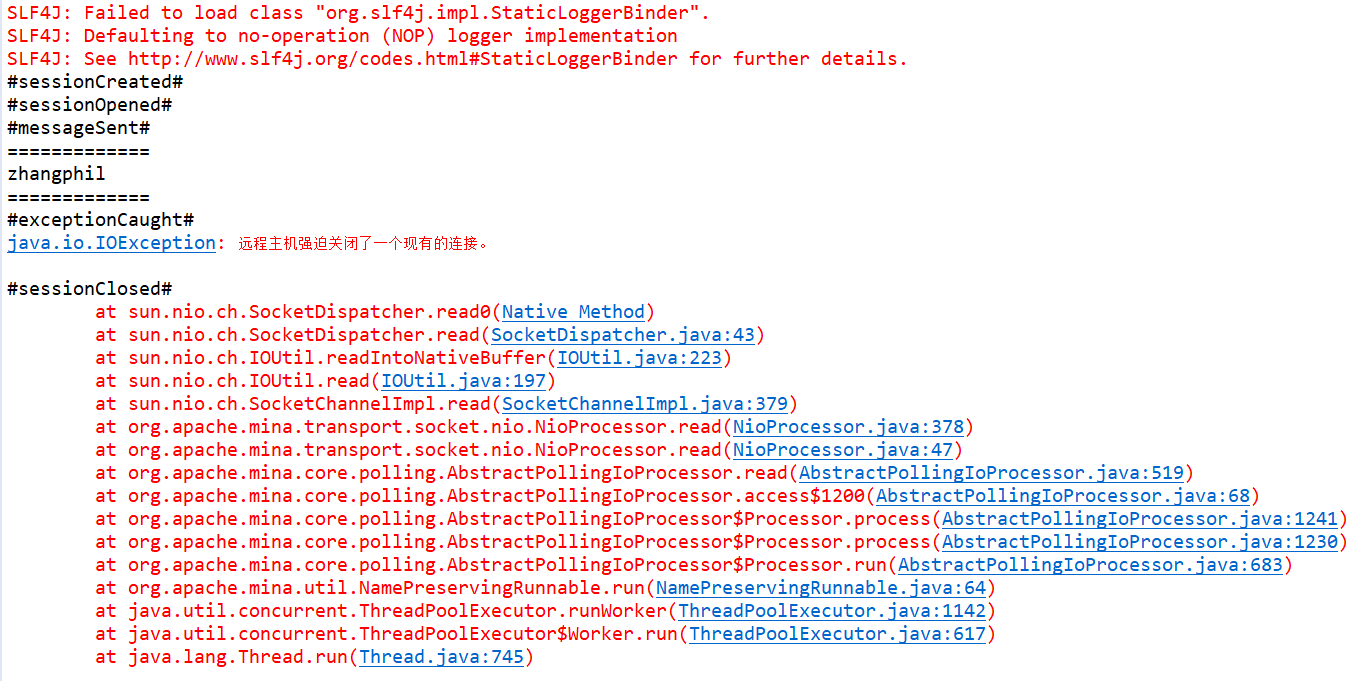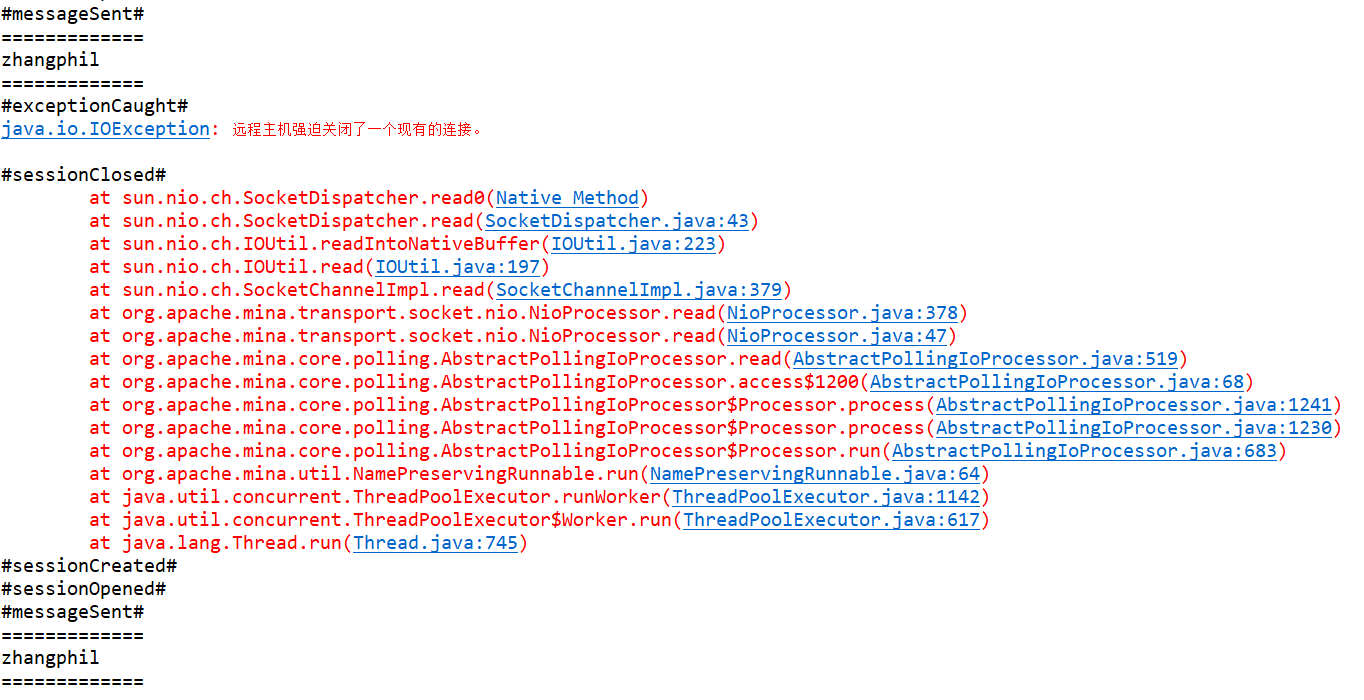Java Socket framework Apache MINA: implement Socket server
Now, Apache MINA is used to realize a simple Socket Server. The Server implements a simple function. When a Socket client connects, it sends a simple string "zhangphil" to the client. The Server-side program code is as follows:
import java.net.InetSocketAddress;
import java.nio.charset.Charset;
import org.apache.mina.core.service.IoAcceptor;
import org.apache.mina.core.service.IoHandlerAdapter;
import org.apache.mina.core.session.IdleStatus;
import org.apache.mina.core.session.IoSession;
import org.apache.mina.filter.codec.ProtocolCodecFilter;
import org.apache.mina.filter.codec.textline.TextLineCodecFactory;
import org.apache.mina.filter.logging.LoggingFilter;
import org.apache.mina.transport.socket.nio.NioSocketAcceptor;
public class MINATest {
public static void main(String[] args) {
try {
MINATest test = new MINATest();
} catch (Exception e) {
e.printStackTrace();
}
}
public MINATest() throws Exception {
IoAcceptor acceptor = new NioSocketAcceptor();
// Filter chain.
acceptor.getFilterChain().addLast("logger", new LoggingFilter());
acceptor.getFilterChain().addLast("codec",
new ProtocolCodecFilter(new TextLineCodecFactory(Charset.forName("UTF-8"))));
// Handle.
acceptor.setHandler(new SocketServerHandler());
// The server binds port 80 and waits for the client connection request.
acceptor.bind(new InetSocketAddress(80));
}
// The Socket server side of Apache MINA.
private class SocketServerHandler extends IoHandlerAdapter {
// Session creation.
@Override
public void sessionCreated(IoSession session) throws Exception {
super.sessionCreated(session);
System.out.println("#sessionCreated#");
}
// Triggered when the session is opened (the sessionCreated function is triggered first when the first connection is made, and then this function is triggered).
@Override
public void sessionOpened(IoSession session) throws Exception {
super.sessionOpened(session);
System.out.println("#sessionOpened#");
sendDataToClient(session);
}
@Override
public void messageSent(IoSession session, Object message) throws Exception {
super.messageSent(session, message);
System.out.println("#messageSent#");
System.out.println("=============");
System.out.println(message.toString());
System.out.println("=============");
}
// Triggered when a message is received.
@Override
public void messageReceived(IoSession session, Object message) throws Exception {
super.messageReceived(session, message);
// System.out.println("messageReceived");
System.out.print(message.toString());
}
@Override
public void sessionClosed(IoSession session) throws Exception {
super.sessionClosed(session);
System.out.println("\n#sessionClosed#");
}
@Override
public void sessionIdle(IoSession session, IdleStatus status) throws Exception {
super.sessionIdle(session, status);
System.out.println("#sessionIdle#");
}
@Override
public void exceptionCaught(IoSession session, Throwable cause) throws Exception {
super.exceptionCaught(session, cause);
System.out.println("#exceptionCaught#");
cause.printStackTrace();
}
}
private void sendDataToClient(IoSession session) {
String string = "zhangphil";
session.write(string);
}
}
After the server-side program runs, when a client Socket is connected, the server-side program outputs the following results:

When the remote connected client suddenly disconnects, the server program outputs the following results:

At this time, the server-side program does not exit. When a new client Socket is connected, the server-side program, as always, sends the data "zhangphil" to the client. The output is as follows:
